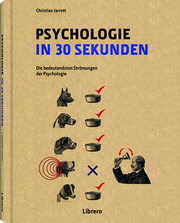Beschreibung
This book digs into the complex archaeology of empathy illuminating controversies, epistemic problems and unanswered questions encapsulated within its cross-disciplinary history.The authors ask how a neutral innate capacity to directly understand the actions and feelings of others becomes charged with emotion and moral values associated with altruism or caregiving. They explore how the discovery of the mirror neuron system and its interpretation as the neurobiological basis of empathy has stimulated such an enormous body of research and how in a number of these studies, the moral values and social attitudes underlying empathy in human perception and action are conceptualized as universal traits. It is argued that in the humanities the historical, cultural and scientific genealogies of empathy and its forerunners, such as Einfühlung, have been shown to depend on historical preconditions, cultural procedures, and symbolic systems of production.The multiple semantics of empathy and related concepts are discussed in the context of their cultural and historical foundations, raising questions about these cross-disciplinary constellations. This volume will be of interest to scholars of psychology, art history, cultural research, history of science, literary studies, neuroscience, philosophy and psychoanalysis.
Autorenportrait
Vanessa Lux is a research fellow at the Faculty of Psychology at Ruhr University Bochum, Germany. From 2011 to 2015, she was a postdoctoral researcher at the Center for Literary and Cultural Research Berlin in research projects on epigenetics and neuropsychoanalysis. She is a member of the International Society for Theoretical Psychology.Sigrid Weigel is a research scholar and former Director of the interdisciplinary Center for Literary and Culture Research in Berlin, an expert of Benjamin, Warburg, Heine, Freud, Arendt, Scholem et al. and has published on the cultural history of knowledge, images and European cultural history.
Inhalt
1. The Heterogeneity of Empathy - An Archaeology of Multiple Meanings and Epistemic Implications; Sigrid Weigel.- Part I: Epistemic Interventions.- 2. Levels of Empathy Primary, Extended, and Reiterated Empathy; Thomas Fuchs.- 3. Embodied Empathy Clinical and Developmental Perspectives in Psychoanalysis; Marianne Leuzinger-Bohleber.- 4. Empathy and Other Minds A Neuropsychoanalytic Perspective and a Clinical Vignette; Mark Solms.- 5. Measuring the Emotional Quality - Empathy and Sympathy in Empirical Psychology; Vanessa Lux.- 6. From Absorption to Judgement: Empathy in Aesthetic Response; David Freedberg.- 7. The Empathic Body in Experimental Aesthetics Embodied Simulation and Art; Vittorio Gallese.- Part II. Debated History.- 8. Empathy, Imagination, and Dramaturgy A Means of Society in 18th Century Theory; Helmut J. Schneider.- 9. Einfühlung A Key Concept of Psychological Aesthetics; Christian G. Allesch.- 10. A Question of Character Analogy and the EmpathicLife of Things; Andrea Pinotti.- 11. The Roots of Intersubjectivity - Empathy and Phenomenology according to Edith Stein; Patrizia Manganaro.- 12. Empathys Translations Three Paths of Einfühlung into Anglo-American Psychology; Susan Lanzoni.
E-Book Informationen
„eBooks“ sind digitale Bücher. Um eBooks lesen zu können, wird entweder eine spezielle Software für Computer, Tablets und Smartphones oder ein eBook-Reader benötigt. Da es eBooks in unterschieldichen Formaten gibt, gilt es, folgendes zu beachten.
Von uns werden digitale Bücher in drei Formaten ausgeliefert. Die Formate sind EPUB mit DRM (Digital Rights Management), EPUB ohne DRM und PDF. Bei den Formaten PDF und EPUB ohne DRM müssen Sie lediglich prüfen, ob Ihr eBook-Reader kompatibel ist. Wenn ein Format mit DRM genutzt wird, besteht zusätzlich die Notwendigkeit, dass Sie einen kostenlosen Adobe® Digital Editions Account besitzen. Wenn Sie ein eBook, das Adobe® Digital Editions benötigt, herunterladen, erhalten Sie eine ASCM-Datei, die zu Digital Editions hinzugefügt und mit Ihrem Account verknüpft werden muss. Einige eBook-Reader (zum Beispiel PocketBook Touch) unterstützen auch das direkte Eingeben der Login-Daten des Adobe Accounts – somit können diese ASCM-Dateien direkt auf das betreffende Gerät kopiert werden.
Da eBooks nur für eine begrenzte Zeit – in der Regel 6 Monate – herunterladbar sind, sollten Sie stets eine Sicherheitskopie auf einem Dauerspeicher (Festplatte, USB-Stick oder CD) anlegen. Außerdem ist die Anzahl der Downloads auf maximal 5 begrenzt.









